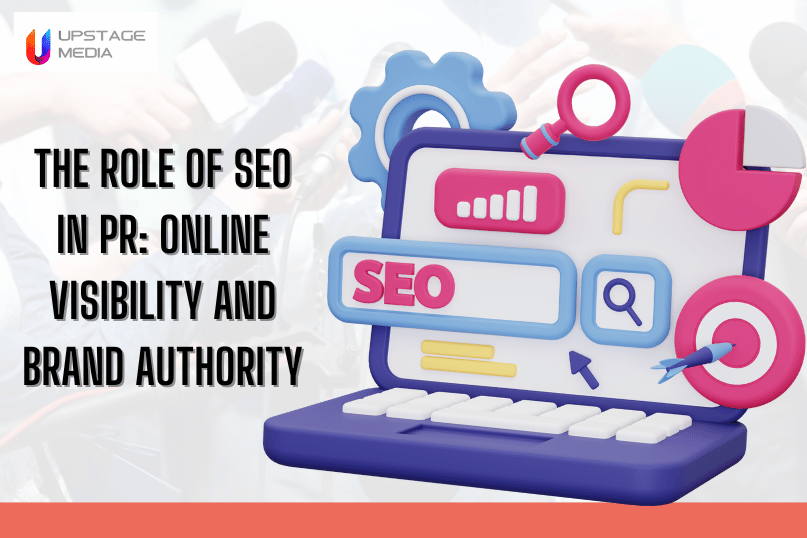Table of Contents
Recently updated on September 2nd, 2024
Introduction
The digital areas of modern marketing strategy include PR and SEO. PR deals with a good public image and building good relations with prospective clients, while SEO is all about promoting a website in search engines. PR and SEO were once from different industries, but today, they both coincide due to the fact that firms need to convey the right message in this hyper-competitive context on the internet.
Since search engines are one of the main mediums for obtaining information for most consumers, the disciplines need to come together in support of both brand messaging and online presence. In sum, SEO and PR are vital to succeeding in today’s digital-first landscape because they enhance communication and brand authority.
The Convergence of SEO and PR

Traditional PR vs. Digital PR
Traditional PR relied on press releases, media pitches, and meetings with journalists. Those things worked, but traditional media channels restricted them, and they were unquantifiable. Digital PR uses social media, internet platforms, and SEO to make sure people find you where they are online.
Since SEO is a big factor in that transformation, public relations professionals must adjust their approach. In the digital age, good tales aren’t good enough; one needs to understand search engines, consumer questions, and structuring the content.
How SEO Enhances PR Efforts
SEO can help PR in several ways. Using targeted keywords in press releases and other PR content helps that content show up in search results for potential customers to find. Link-building increases the domain authority, search ranking, and reach of content. Finally, optimization of content would help the audience and thought leadership of the brand through blogs, articles, and multimedia.
Key SEO Strategies for PR Professionals
Following are some strategies that will help a professional make full use of SEO to support PR efforts.
Keyword Research and Optimization
A proper SEO strategy would be incomplete without proper keyword research, and PR is no different. What is needed in the case of public relations professionals is to carefully establish the search phrases. They can analyze search trends in an attempt to tune their content. These keywords silently slide into blogs, social media posts, and press releases to make the content relevant and SEO-friendly. Keyword application boosts visibility and search results, therefore attracting more readers.
Link Building Through Media Relations
Building good relations with the press and influential people in the industry translates into good PR and SEO. PR people can use such contacts to their advantage to get backlinks from authoritative blogs and news sites, which help attain good Google search results. Links coming from credible websites are most likely to propel the site upward on the search results. This visibility of media coverages and mentions boosts brand name visibility through news links shared and reposts.
Content Optimization for Search Engines
Writing interesting, quality content is the first part of the equation in SEO and PR success. The practice of writing in an SEO-friendly manner is recommended. This means cautious usage of keywords, improving meta descriptions, and making the content shareable over several networks. In the digital age, owned and optimized is the primary strategy to go about in view of brand growth and SEO. PR pros can boost a brand’s online visibility, memory, and impact with smart, relevant stories.
Improving Online Visibility
Enhancing Search Engine Rankings
SEO in PR provides several immediate benefits, including improving the search engine ranking. Intelligent building of links and keyword usage can improve the search visibility of PR content. Brand exposure leads the target audience to find the brand, which increases the chances of new consumers and customer engagement. Proper PR SEO practices enhance brand reach and impact by improving visibility in search engines.
Increasing Organic Traffic
SEO aims to boost organic traffic through the search results. SEO-PR may enhance brand awareness by driving more traffic. With increased organic traffic, the brand reach extends, and stakeholder communications as well as future consumer interactions become much easier. PR tools such as press releases and blogs can be optimized for better traffic on the website and its brand visibility.
Amplifying press releases and media coverage
For instance, search engine-optimized press releases have increased the likelihood of their visibility to journalists and media. In other words, a press release written with search engine optimization in mind would be easier to find in a search. All of this visibility could lead to an increase in the engagement about the content, driving web traffic for the brand. PR combined with SEO will boost exposure to press releases and audience interaction.
Building Brand Authority
Establishing Thought Leadership Through Content
Creating credible content is a must to be the market leader. That will be possible with case studies, whitepapers, and blogs that should be very informative with valuable analysis and knowledge. SEO-optimized content enables the brand online. These results in producing meaningful, quality content in order to drive website traffic, thought leadership, and higher search engine rankings.
Leveraging Backlinks from Reputable Sources
Backlinks from the most credible sources enhance brand credibility and SEO. A PR team could use its influence with bloggers and reporters to produce content deserving of backlinks. Search engines are, therefore, alerted that the content is actually trustworthy, and this will elevate the brand’s online standing by also raising it in the search engines. Backlinks from authoritative sites can give any brand a leg up in SEO and reputation.
Managing Online Reputation
Online reputation could be defined as anything that practically influences the performance of a brand in a world of the web. Brands could have a higher impact on search engine results since SEO could be integrated during any PR activity. Additionally, brands could influence perception in a proactive way, where they will allow the desirable aspects to rise and the undesirable to fall. Companies could build and maintain a reputable web presence through best practices of optimization and PR content. This will ensure a positive impact on stakeholder’s as well as customers.
Measuring Success: SEO Metrics for PR
Key Performance Indicators (KPIs)
Researchers should identify key performance indicators that shall be used to determine the incorporation of SEO-PR. Success of a PR strategy includes organic visitor growth, search engine ranking performance, new backlinks acquired, and social media mentions. Such KPIs enable public relations professionals to review their SEO methods and performance, evaluate their work, and enhance their performance. Brands can use such KPIs in ascertaining that PR initiatives comply with their SEO goals and boost their online marketing performance.
Tools for Tracking SEO Impact on PR Efforts
PR practitioners can track the impact of SEO in a number of ways. Google Analytics is helpful to measure the traffic on the website, the activities of the users, and the engagement time on the site. In making full SEO analysis, SEMrush or Moz can be highly useful. Such technologies analyze your SEO, backlinks, and keywords thoroughly, and that’s all in all. This means the public relations professionals are informed about their SEO situation, and they can point out what areas they need to improve and what to do better with these tools. Public relations professionals will adjust and improve their strategy with such information. So, the findings will help the brand to improve their online presence and PR campaigns.
Challenges and Best Practices
Balancing SEO Requirements with Journalistic Integrity
SEO in public relations efforts should be handled with care so as not to dilute the journalistic credibility of the topic of content. The content has to be genuine and beneficial. Do not use advertising content language or engage in keyword stuffing.
Staying updated with search engine algorithm changes
Revisions of the algorithm by search engine companies may affect the ranking of content. There is a need to work with current trends in content strategies. Public relations can only remain effective with the two components of constant learning and flexibility.
Future Trends: The Evolving Relationship Between SEO and PR
Technology and consumer behavior will continue to evolve the relationship of PR with SEO. Analytics of data, creation of content by artificial intelligence, and optimization of voice search will bring new trends that will alter how these sectors interact together. PR professionals who adapt to a digital world will be in an advantaged position.
Conclusion
PR and SEO combine as a way of increasing the authority of the brand and consequently boost its presence online. The encouragement of the interaction of the two fields supports the creation of holistic strategies encouraging search engines, thus fostering long-term customer relations. The practitioners of the PR domain, seeking long-term success within this new digital order, need to adapt to best practices and also the industry trends.
